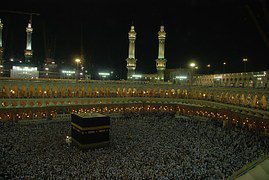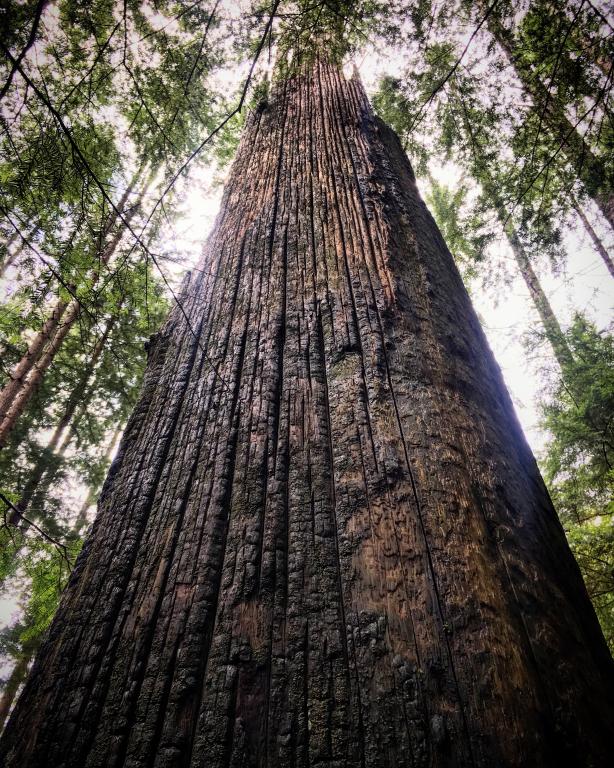This week marks the beginning of the Hajj, the final month of the Muslim calendar, when Muslims from around the world will be converging on Mecca to commemorate the holiest moments in their faith’s history. The pilgrimage is one of the five pillars of Islam, and all Muslims are called to make the journey at least once in their lives.
This week also marks the 15th anniversary of the 9/11 attacks on the World Trade Center, Pentagon and the botched attempt at the Capitol. Like most of us, I remember exactly where I was when I found out about the attacks. I was finishing up a graveyard shift at the group home for abused children where I worked. My colleague and morning relief walked through the door to tell me that a commercial plane had hit one of the twin towers. She was stunned. I was shaken but groggy from the sleepless night. I drove home and turned on the news coverage, witnessing the second plane fly into the second tower live on television. I fell asleep on the couch as the news channels endlessly replayed the moment of impact.
That day the US changed. We all changed. We mourned, but we also quickly began to talk of revenge. Someone had to pay for this. In December of 2001, I left for my LDS mission in the Dominican Republic as the US invaded Afghanistan to depose the Taliban and eradicate Al-Qaida. In March of 2003, as I was shopping for groceries in Puerto Plata, DR in my missionary shirt and tie, I read the headlines of the daily newspaper: US INVADES IRAQ. I felt a pang of sadness. I somehow knew that despite Saddam Hussein’s atrocities against his own people, the country had nothing to do with the 9/11 attack. I knew that thousands more would die to satisfy our lust for revenge. I sensed that this would only add fuel to the flames that burned in the hearts of the kinds of people responsible for 9/11 in the first place.
But I too wanted justice. Were the wars simply playing out of Mosaic law found in Exodus 21:
“But if there is any further injury, then you shall appoint as a penalty life for life, eye for eye, tooth for tooth, hand for hand, foot for foot, burn for burn, wound for wound, bruise for bruise…”
This familiar Biblical adage was widely in place in the ancient Middle East, and was meant to limit retaliation to a proportionate response, in other words, only an eye for an eye. Our response to 9/11? Invading two countries, killing somewhere in the range of 130,000 to 170,000 civilians in Iraq, and some 30,000 in Afghanistan. That is not an eye for an eye. That is a clunky disproportionate unleashing of wrath designed to terrorize an entire region into submission. An eye for an eye is not terror for terror.
During the Hajj, Muslims who enter the Kaaba, the center of Islam, the place toward which all Muslims pray each day, are not allowed to damage even a plant, let alone carry weapons. All Muslims wear similar clothing and there is no distinguishing between rich and poor. This is worlds away from the hate-filled violence of ISIS and its so-called Islamic State.
Love our enemies? Honestly, I don’t know what loving ISIS looks like. They are a corruption of the heart of Islam, and a distillation of all the hatred and violence sewn in the last 15 years. I have some shadow of an idea of what loving our enemies might have looked like after the fall of the Ottoman Empire, or after WWII when the West carved up the Middle East according to our interests rather than those of the people that made up the region. But it is too late for that now. We are where we are, and Islamist violence continues against Western targets, but more often than not other Muslims.
There is tinder enough in any religious tradition to fuel the flames of hatred. Christian history is far too filled with examples, and there are even violent Hindu and Buddhist movements in India and Myanmar. Religion certainly participates in all the ways that human beings fear, hate, other, kill, conquer and oppress; but it does not cause these things. Certainly a wing of Islam is experiencing an intense flare up at the moment in history. But it is Muslims themselves that hold the hoses that will extinguish the flames. I suppose we must continue the small gestures of seeking understanding, loving in spite of fear, praying for peace and unity, and holding our own leaders accountable for their actions on the international scene. Somehow we must stop pouring gasoline on the fire when what we want is to put it out.













